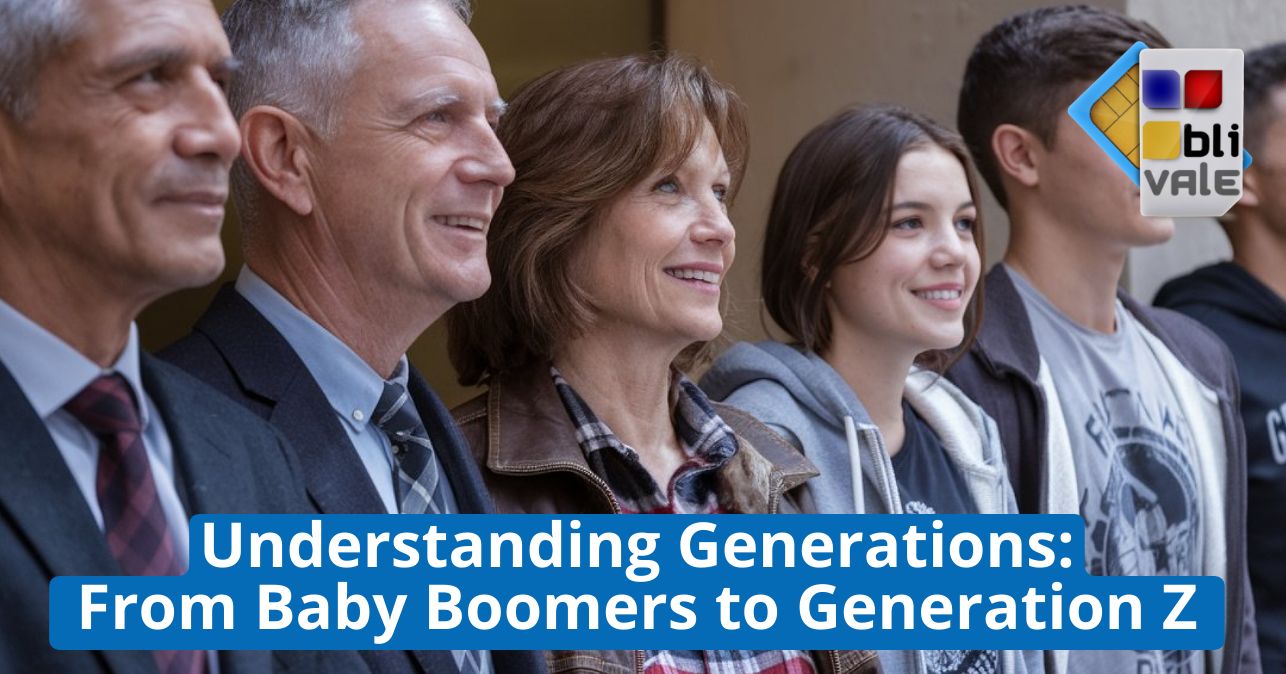Labeling people based on their generational origin may seem like a superficial exercise, but it is actually a valuable tool to better understand the society we live in. Each generation grows up in a unique historical, social and technological context, which profoundly shapes their values, attitudes and expectations.
Knowing the distinctive characteristics of each generation, from Baby Boomers to Generation Z, helps us communicate more effectively, collaborate better in diverse groups, and predict behavioral and consumer trends. Additionally, identifying with a generation can foster self-awareness, helping people better understand themselves and their life experiences.
In this article we will explore the main generations in detail, providing an overview of their peculiarities and how these are reflected in different areas of life.
The traditionalists (1925-1945)
Traditionalists, also known as “Old-Timers” or “Silents,” are the generation born between 1925 and 1945. This generation experienced crucial historical events, such as the Great Depression and World War II, that shaped their character.
Traditionalists are often associated with traditional values, such as respect for authority, patriotism, and a sense of duty. They are often described as disciplined, financially responsible, and institutionally loyal. They have a fairly conservative worldview and tend to favor stability and security.
In the workplace, traditionalists are known for their rigorous work ethic and loyalty to the company. They are seen as reliable, punctual and respectful of hierarchies. However, they may also be perceived as less adaptable to change and new technologies.
The baby boomers (1946-1964)
Baby Boomers are the generation born in the period of demographic expansion and economic prosperity that followed World War II, between 1946 and 1964. This generation was strongly influenced by the social and cultural movements of the 1960s and 1970s, such as feminism, civil rights activism, and the counterculture.
Baby boomers are often associated with an optimistic attitude, a strong desire for personal fulfillment and a certain degree of consumerism. They are seen as ambitious, determined and sometimes workaholics. Many of them have had successful careers and have witnessed significant technological and social advances.
However, Baby Boomers are also known to be a generation that has struggled to find a balance between work and personal life. Furthermore, their consumption-focused lifestyle has been questioned for its environmental impact.
Generation X (1965-1980)
Generation X, born between 1965 and 1980, grew up in a time of great social and technological change. This generation witnessed the end of the Cold War, the rise of information technology and the explosion of pop culture.
Generation Xers are often described as independent, flexible and critical. They are seen as pragmatic, skeptical of institutions and eager to find a balance between work and personal life. Many of them had to deal with the economic recession of the 1980s and 1990s, which affected their attitudes towards work and money.
In the workplace, Generation X is valued for its ability to adapt to change and think outside the box. They are also known for their desire for autonomy and their reluctance to blindly follow authority.
Millennials (1981-1996)
Millennials, born between 1981 and 1996, are the first generation to have grown up in an increasingly digital and connected world. This generation has been strongly influenced by the arrival of the Internet, social media and new technologies.
Millennials are often described as individualistic, tech-savvy, and collaborative. They are seen as more educated and open to diversity than previous generations. Many of them seek a deeper sense of purpose in life and a work-life balance.
In the workplace, millennials are known for their desire for feedback and continuous professional development. They are also valued for their creativity, teamwork, and innovative approach to problem-solving.
However, Millennials have also been criticized for their alleged “narcissism” and their need to be constantly reassured and validated.
Generation Z (1997-2012)
Generation Z, born after 1997, is the first fully digital generation. These young people have grown up in an always-connected world, with constant access to the Internet and social media.
Gen Zers are often characterized by a strong sense of social responsibility, a more pragmatic approach to work, and an entrepreneurial attitude. They are seen as more realistic and practical than millennials, with a greater awareness of global challenges such as climate change and social inequality.
In the workplace, Gen Z is valued for its familiarity with digital technologies, ability to multitask and desire to make a positive impact. However, they can also be perceived as impatient and with high expectations for career advancement and work-life balance.
Generation Alpha (2013-present)
Generation Alpha, born after 2013, is the first generation to be completely “digital native.” These children and teenagers have grown up in a world dominated by technology, social media and artificial intelligence.
Although it is still too early to precisely define the characteristics of Generation Alpha, they are expected to be even more technologically advanced, creative and inclusive than previous generations. They will likely be more aware of global challenges and more willing to contribute to creating a better future.
In the world of work, Generation Alpha will likely have an even more innovative and collaborative approach, taking full advantage of the potential of new technologies.
If you are thinking of going on a solo adventure, do not forget the importance of staying connected wherever you are. For internet connection and unlimited calls turn to BLIVALE where you can get unlimited internet and calls according to the destinations:
Whether it’s unlimited data or voice plans, BLIVALE guarantees free roaming anywhere in the world, no connection fee. Don’t let a lack of connection stop you; get ready to explore the world with freedom and spontaneity.
Summary table of generations
Below is a new table that looks at intergenerational relationships in the workplace and the impact of technology on different cohorts:
Analysis of intergenerational relationships and the impact of technology
Conflicts and synergies: Different generations can lead to conflicts due to different values, expectations and working styles. However, intergenerational collaboration can lead to mutual enrichment and greater innovation.
Role of technology: Technology has a significant impact on intergenerational relationships. Younger generations, being more comfortable with digital tools, can facilitate the adoption of new technologies in companies.
Adaptability and flexibility: It is essential for companies to promote an inclusive and flexible work environment that takes into account the different needs of different generations.
Mutual learning: Older generations can pass on their experiences and wisdom to younger ones, while younger generations can contribute new ideas and perspectives.
Additional remarks:
Generalizations: The information presented is a generalization and may not apply to all individuals in a generation.
Cultural context: The cultural and social context in which a person grows up has a significant impact on their identity and values.
Evolution: Generations are not static, but evolve over time, as do intergenerational dynamics and the impact of technology.
Conclusion
Understanding different generations and their distinctive characteristics is essential to successfully navigate a rapidly changing world. This type of knowledge helps us communicate more effectively, collaborate better in diverse groups, and predict behavioral and consumer trends.
However, it is important to remember that generational definitions are not rigid and that each person is unique, with their own background, experiences and preferences. Avoiding prejudices and overgeneralisations is essential to building meaningful relationships and making the most of diversity.
Whether you're a Baby Boomer, a Millennial, or Gen Z, knowing about generations can help you better understand yourself and others. Use it wisely and with an open mind to create a more connected and collaborative world.









